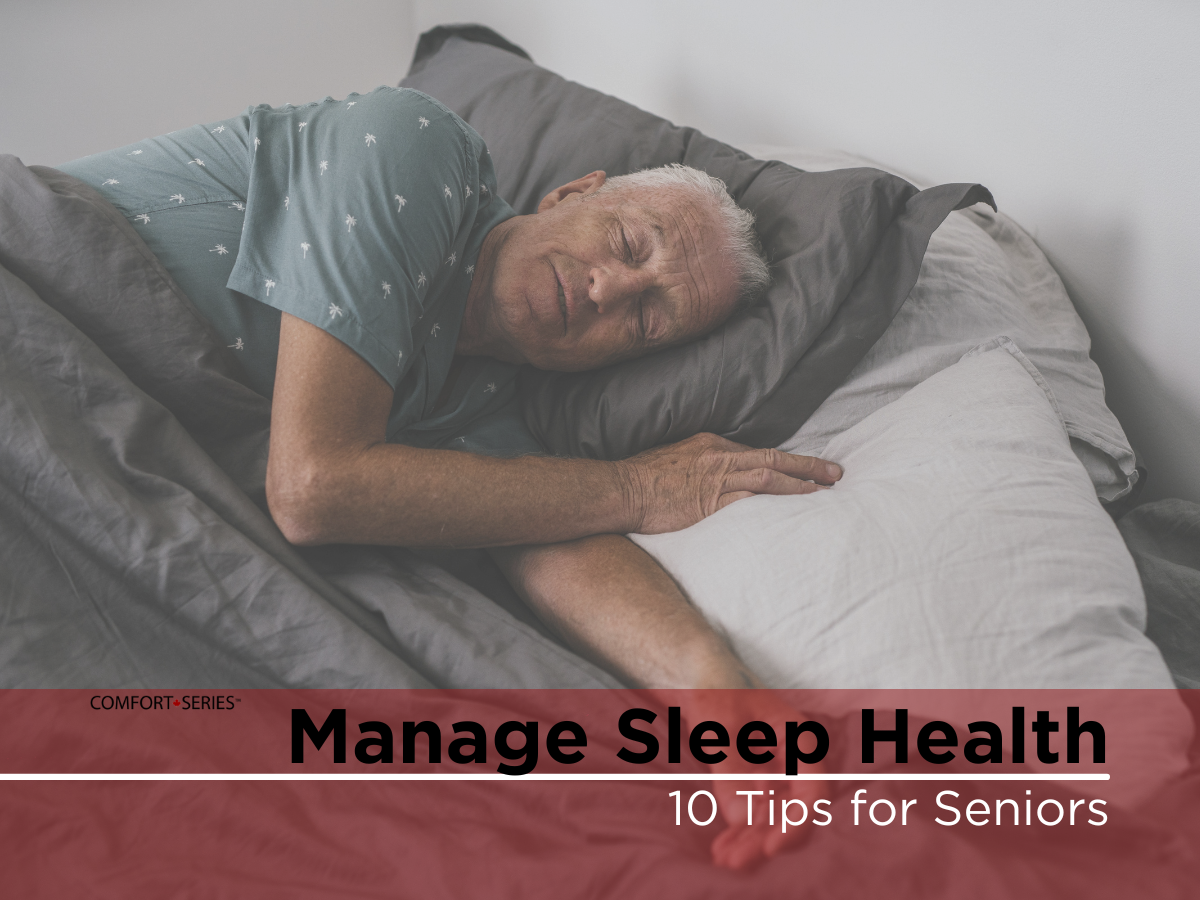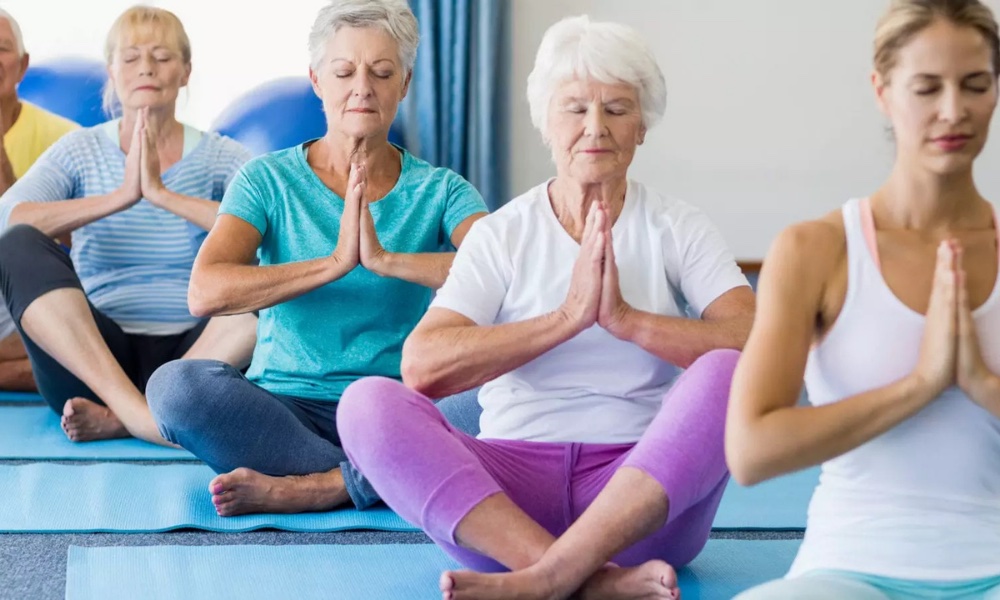Do you ever wonder why you lay in bed wide awake, when your body knows that it should be getting at least 7 hours of restful sleep?
Well it turns out, that there are several elements that can hinder your precious shut-eye, and here are some tips to help you cope and remedy wakefulness.
There are three types of Insomnia; which one relates to you?
- Transient (symptoms are less than 1 week)
- Acute (short term symptoms)
- Chronic (long term symptoms)
Statistics show that 20%-30% of Canadian adults struggle with sleep issues, and 50%-60% of those are related to medical and mental ill health. Older adults are more susceptible to insomnia, and suffer from sleep deprivation for a number of reasons: age, anxiety, worry, hormones, digital devices, illness, inflammation, injury, and nighttime bathroom visits.
What is Insomnia
Insomnia is a sleep disorder that can make it hard to fall asleep, stay asleep, and waking through the night, preventing you from falling back to sleep. We need 7-9 hours of restful sleep for general good health and cognitive functioning.
Not getting a recommended 7+ hours of sleep regularly can leave you feeling foggy, irritable, depressed, confused, and at a higher risk of accidental falls.
According to the Sleep Foundation, those suffering from chronic insomnia are at a 20% increased risk of stroke and heart attacks.
Causes
There are several risk factors that can cause insomnia such as age, family genetics, the environment that you live and/or work in, the one you sleep in, your lifestyle in general, and the condition of your health. A lack of sleep can affect your daily energy level, your mood swings, memory, concentration, decision-making and work performance.
We know that when we lack sleep, it can worsen your immune response, contribute to heart problems, blood pressure increases, mental health, cognitive decline and dementia.
For some, chronic pain and inflammation is the number 1 reason for their reduced Quality of Life and sleep deprivation. Addressing pain directly could be the most important method to of tackling the source of your insomnia cycle, and promote self-healing.
Lifestyle Contributors
Address and review the activities that you participate in; what and when do you eat, how you exercise, what your hobbies are; do you actively listen to world events, news, COVID; are you socializing, and what medications you are taking?
Tips to Manage Insomnia Symptoms
The goal is to change and establish a regular sleep cycle. One that will allow you to get a more restful night, recondition/reset your body’s time clock, and have a healthier and fresher next day to prevent illness and injury.
- Schedule your bedtime routine. Identify when you will go to sleep, and when you will wake; be consistent each day.
- Consume lighter meals at dinnertime, with reduced spices that can cause acid reflux.
- No caffeine after noon, and no alcohol.
- Keep your bedroom 2 degrees cooler at night. Your body’s temperature will adjust when you sleep. Using blankets is a better way to warm your core during wind-down time.
- Take a hot bath & soak 2 hours prior to bedtime. This will condition and prepare your body to know that sleep will be imminent.
- Wind-down 1 hour prior to bedtime. Turn off TV or other stimulator sources like phones or tablets.
- Keep your bed for sleeping only. Don’t bring work or projects with you to bed.
- Remove artificial light and sounds from your bedroom (ie electronic devices, video games, tv’s).
- Practice mindfulness and breathe deeply before and after lights go out.
- Seek assistance for persistent chronic pain.
Did You Know?
A warm bath within 2 hours of your bedtime, can help promote a relaxed state by decreasing your body’s heat levels. Here’s the science.
Exercise & Mindfulness
During the day, it’s important for you to get plenty of fresh air and sunlight, or light therapy and to stay hydrated, so that your muscles and joints are amply lubricated. By being active and exercising in the morning, it will help blood flow and circulation early, preventing late night excitement and restless legs. Participating in Yoga, meditation, and relaxation activities in the afternoon or early evening can start your body in transitioning to a more calm and peaceful state that is more encouraging of a regular sleep cycle.

Not everyone can eliminate work or environmental stressors, but helping to manage it will better support your physical health and mental well-being; and hopefully, a better, more restful night’s sleep.
Learn more about ComfortSeries™️ bathtubs, and how they can help you improve your sleep cycles.





